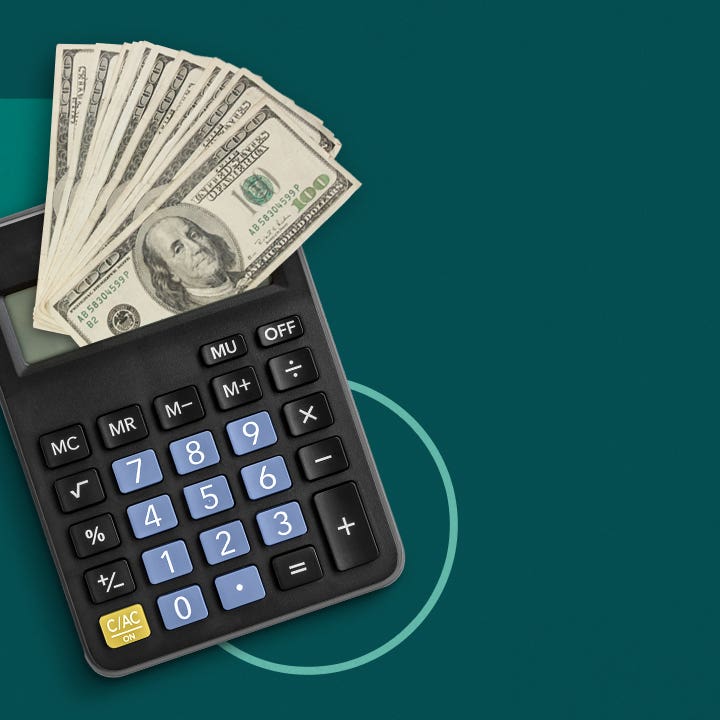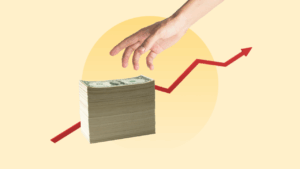Delinquency rates at highest level in almost 30 years

The last time this many drivers were delinquent on their auto loans was when the first mobile flip phone entered the market — in October of 1996. That’s according to new data from Fitch Ratings examining the percentage of borrowers at least 60 days past due on their loans in 2023’s third quarter.
And some borrowers are at a higher risk than others. Here’s what caused this surge and how to decrease your risk of falling behind on your loan.
Subprime auto loan delinquencies surge
According to Experian, borrowers with a FICO score between 501 and 600 fall under the subprime category. Lenders see subprime borrowers as a greater financial risk. Their low scores often indicate past problems with repaying credit. To offset the risk, lenders charge these borrowers higher interest rates.
All borrowers must contend with economic factors such as more expensive vehicles and climbing interest rates. But subprime borrowers, with their extra-high interest rates, face the brunt of increased expenses.
The result has been a dramatic increase in the percentage of subprime borrowers falling at least 60 days past due on their auto loans.
In January 2023, 5.93 percent of subprime borrowers were delinquent, compared to only .28 percent for prime borrowers. In September, that percentage jumped to 6.11 percent for subprime borrowers, according to Fitch Ratings.
The significant increase in delinquency represents the challenge many Americans face — especially those resigned to higher rates due to poor credit. As subprime borrowers struggled to make the payments, many faced delinquency.
What’s driving the surge?
Two primary factors contributed to growing delinquency rates. First is lingering high vehicle prices, and the second is high interest rates.
Vehicle prices have dropped slightly since this time last year. Used prices are down 4 percent and new, just over 1 percent, according to Kelley Blue Book. But these prices are still dramatically above pre-pandemic levels.
These high prices could serve as a problem on its own, but combined with high interest rates borrowers, it is unspringing that borrowers are struggling to make monthly payments.
Despite the higher prices, subprime drivers in 2022’s third quarter had slightly lower average monthly payments than they do now, thanks to lower interest rates.
A few factors drive the interest rate that borrowers receive. These include credit background, vehicle price, the down payment and macroeconomic factors that impact lenders’ borrowing costs. Rates are up year over year for drivers across the credit spectrum.
High interest rates continue to help drive up monthly payments for both used and new vehicles.— Satyan Merchant, SVP and automotive business leader at TransUnion
Subprime borrowers held an average rate of 11.72 percent for new cars and almost 19 percent for used, according to Experian second quarter data. By comparison, the average for all borrowers was 6.63 percent in the same quarter.
Merchant says high interest rates and cross-wallet inflation will likely be around for a while. And more significantly, “affordability will continue to be a challenge, particularly among below-prime consumers.”
The higher the interest rate is, the more expensive your monthly payment will be, which can increase the likelihood of falling delinquent on your loan.

Calculate Your Expected Monthly Payment Before Financing
Take the time to calculate your expected monthly payment before securing financing to avoid the risk of delinquency.
Calculate my paymentIncrease in vehicle repossession
So what happens to the over 6 percent of subprime borrowers who were 60 days past due on their auto loans in September? Most drivers who become delinquent see a dip in their credit score, and some may have their vehicles repossessed.
Your loan agreement lays out when you are considered in default on your loan. It might happen after you miss a single payment or 120 days after your last payment. Most states allow lenders to repossess a vehicle as soon as you’re in default — but many lenders are reluctant to start that expensive process if there’s a chance you’ll resume payments.
This year, the volume of repossessed vehicles increased slightly to 1.5 percent of secured loans, according to Cox Automotive data. The percentage still remains below pre-pandemic levels but has been slowly rising since 2021, when it dropped due to pandemic-related pauses and fell to 1.1 percent. The context here is important: not every delinquent auto loan turns into a default, and not every default will lead to repossession.
Either way, your credit score will take a hit if you fall behind on your loan, making securing financial products more challenging.
How to avoid delinquency on your auto loan
The higher delinquency rates among subprime borrowers paint a picture of auto loan ownership’s difficulties. Consider the following tips to avoid falling delinquent on your auto loan.
- Stay in contact with your lender. If you feel that you may be at risk of missing monthly payments, it is essential to get your lender updated throughout. Lenders prefer to avoid repossessing your vehicle, so keep track of financial documents and communicate throughout.
- Request loan modification. Modifying your loan to make your payment more affordable can help your lender avoid the expenses of repossession. You can defer a few payments or shift your term to fit your budget better. However, not all lenders allow this.
- Work to pay off the loan. Catching up on payments may halt a repossession. This can be one of the most challenging approaches, but if there is room in your budget, it can dramatically help.
- Sell the car. If the chance of affording your monthly payment is slim, selling your vehicle is another way to exit your loan. Ensure that you aren’t upside-down on your loan before choosing this route.
- Consider refinancing. Changing your loan to get a better rate or term can lower your monthly payment to a better spot. But if you have missed many payments or are in default, it’s possible you won’t qualify for refinancing.
- Surrender your car. You can choose to surrender your vehicle if you can no longer pay. This won’t be a repossession but will decrease your credit score.
Why we ask for feedback Your feedback helps us improve our content and services. It takes less than a minute to complete.
Your responses are anonymous and will only be used for improving our website.






